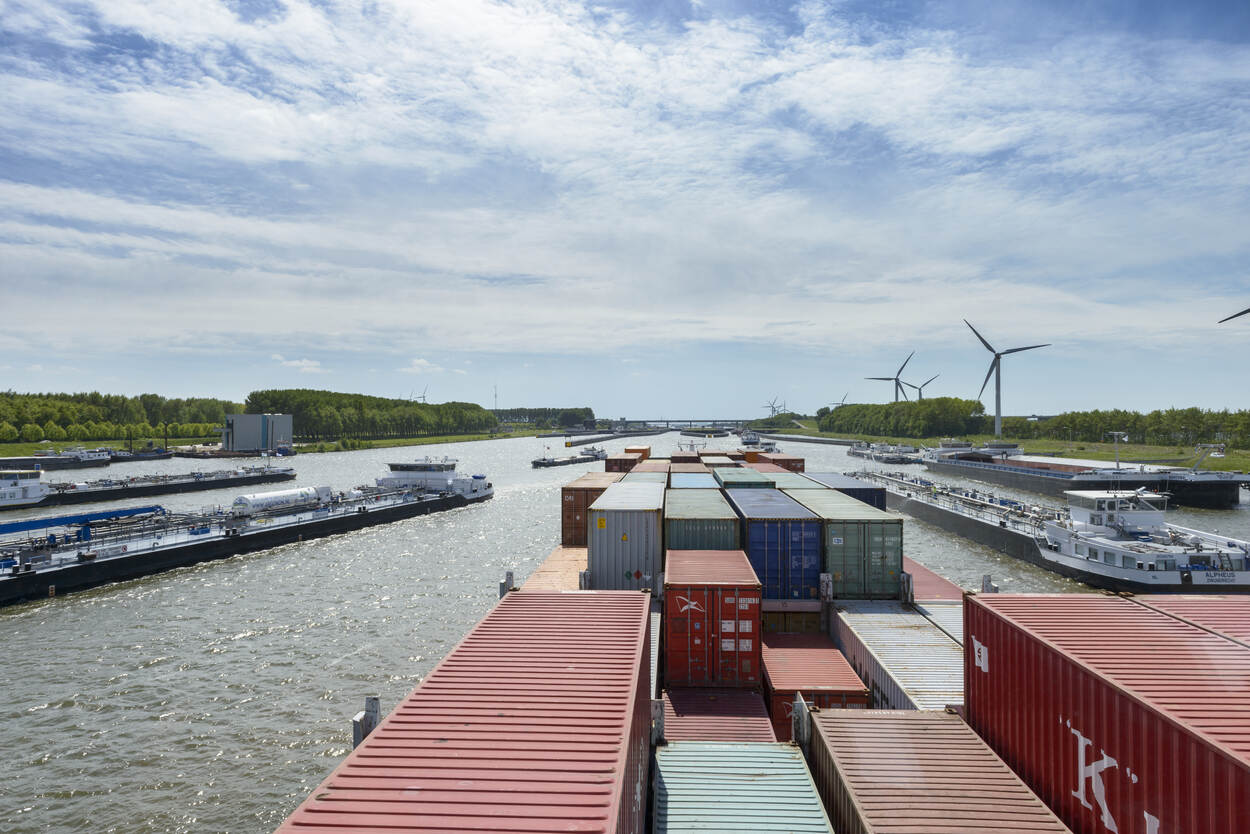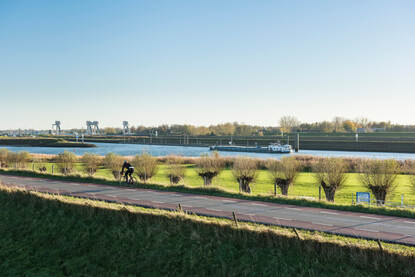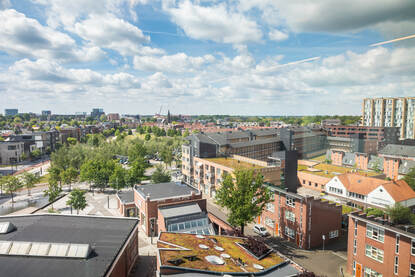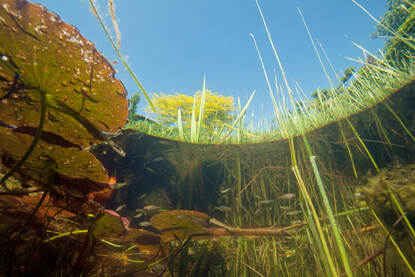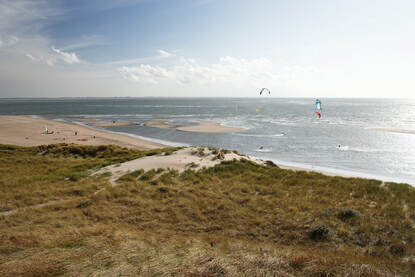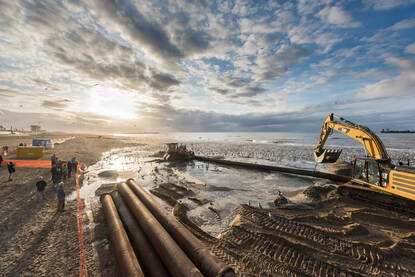The cabinet's second main ambition is the transition to a sustainable, climate-neutral and circular economy. The Netherlands wants to remain a competitive delta in this transition. As part of the NWP, we consider three specific and closely interrelated themes: freshwater supply, shipping and energy transition.
Sufficient freshwater
In the future, the Netherlands must be resilient enough to cope with freshwater shortages. This is not only crucial for our drinking water supplies, but also for agriculture, nature, historic green spaces, industry and shipping. To make our country sufficiently resilient in coping with freshwater shortages, the national government, freshwater regions and users are working together on recommendations from the Drought Policy Committee and a number of concrete objectives. This is visualised in the figure below.
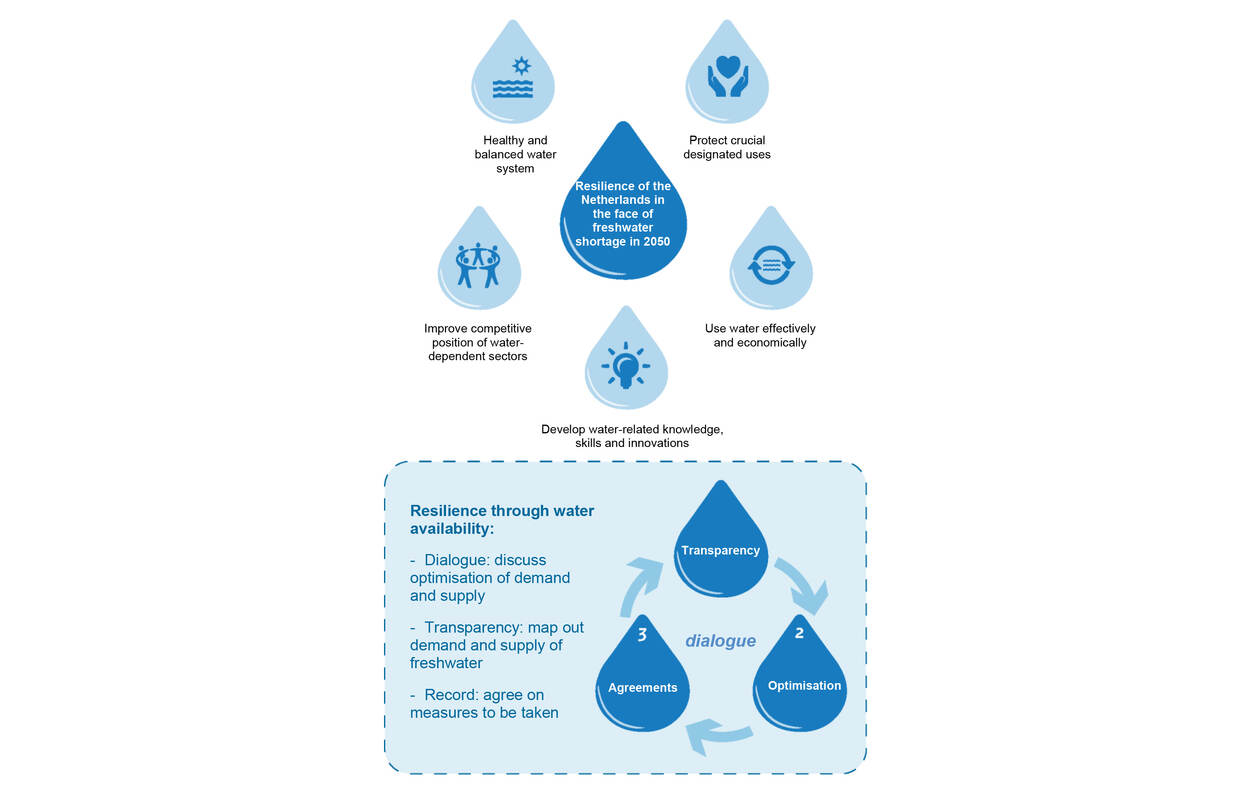
Future-proof freshwater supplies require climate-proof use of land and water. Sufficient freshwater of good quality cannot simply be guaranteed everywhere and at all times for all users and sectors. The starting point is that the demand for water should match the availability of water.
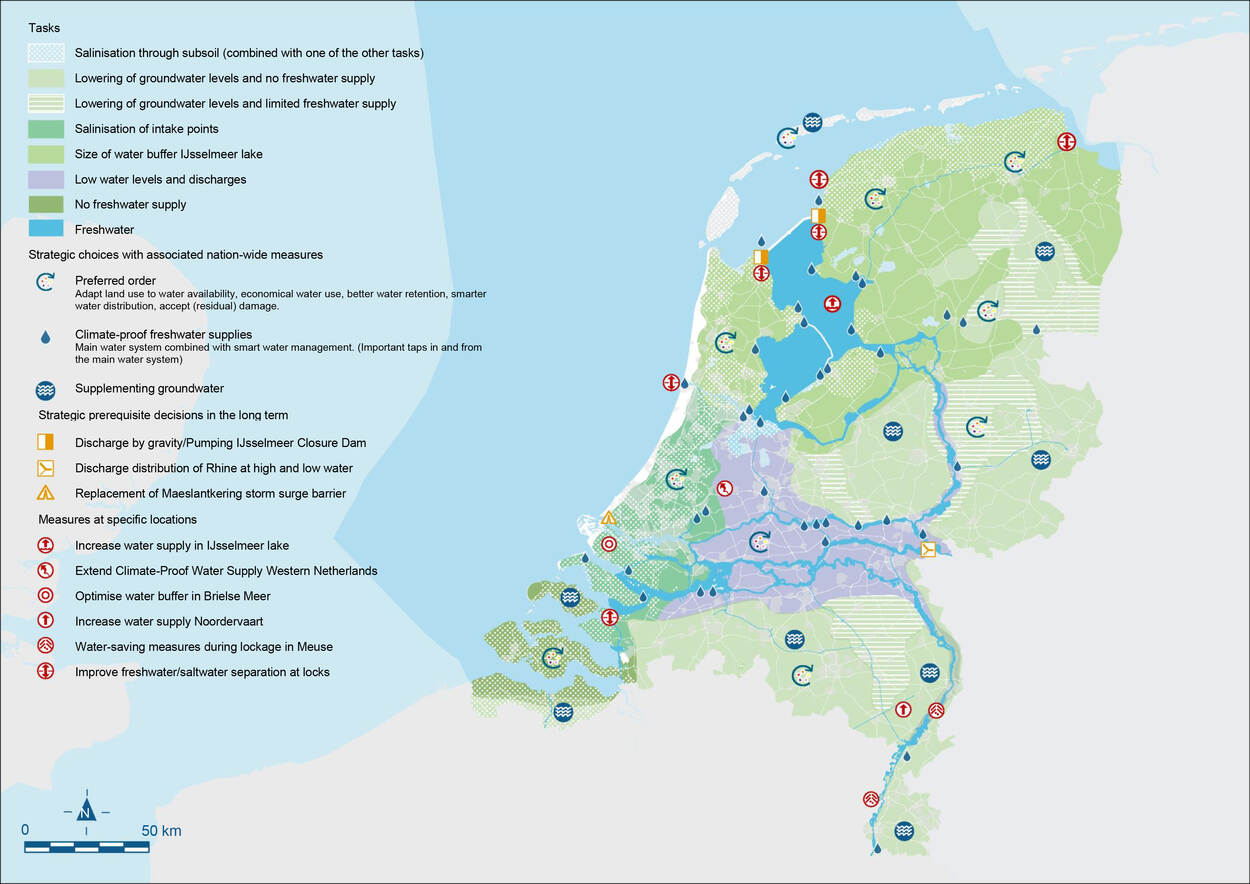
In order to provide the Netherlands with water of sufficient quality for as long as possible, we use a preferential order for water management: use wiser – retain better – distribute smarter. We also focus on the Climate-proof Main Water System Freshwater Supply strategy. The core of this strategy is: a smart distribution of freshwater in case of drought and measures to make the main water system less vulnerable. This strategy makes the water buffers in the IJsselmeer and the tidal rivers area more robust, allowing agriculture and industry, among others, to sustain the use of freshwater in times of drought.
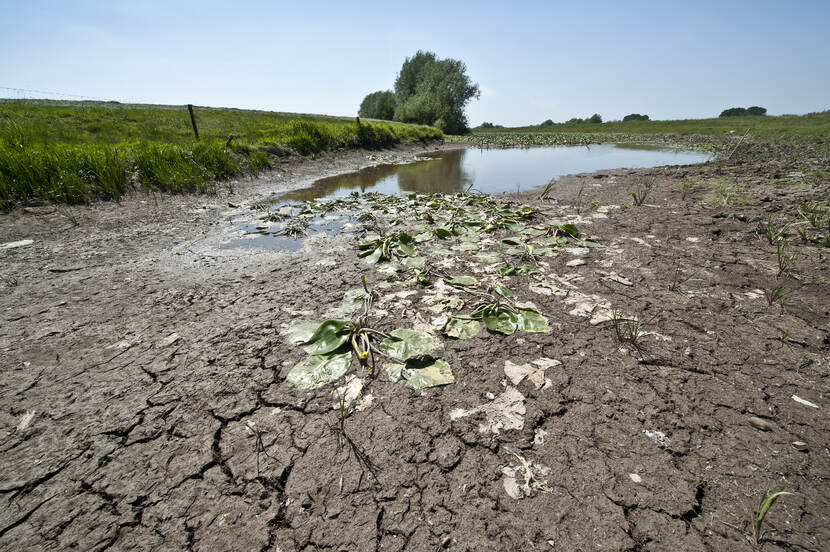
“With drip irrigation, you lay a hose system on your land and allow very targeted droplets to reach the roots of your crop. That ensures a much greater return than when you spray water on your land with a water cannon, part of which will evaporate.”
John Koeleman, chair of organisation Vruchtbare Kringloop Achterhoek
Groundwater must also become more future-proof: with balanced groundwater stocks of good quality. On the elevated sandy soils we strive for active groundwater storage management with the aim of, for instance, raising the groundwater level. These measures also contribute to a climate-proof and water-robust spatial planning in our country.
Good accessibility for shipping
We want to improve the international competitive position of our mainports and the maritime sector for the long term. To that end, we will continue to work on fast, safe, robust and sustainable goods transport by water. For this purpose, the Multi-Year Programme for Infrastructure, Spatial Planning and Transport (MIRT) includes various construction projects. In addition, the goal for shipping, inland navigation and ports is to become more sustainable, in line with the Green Deal with the maritime sector.
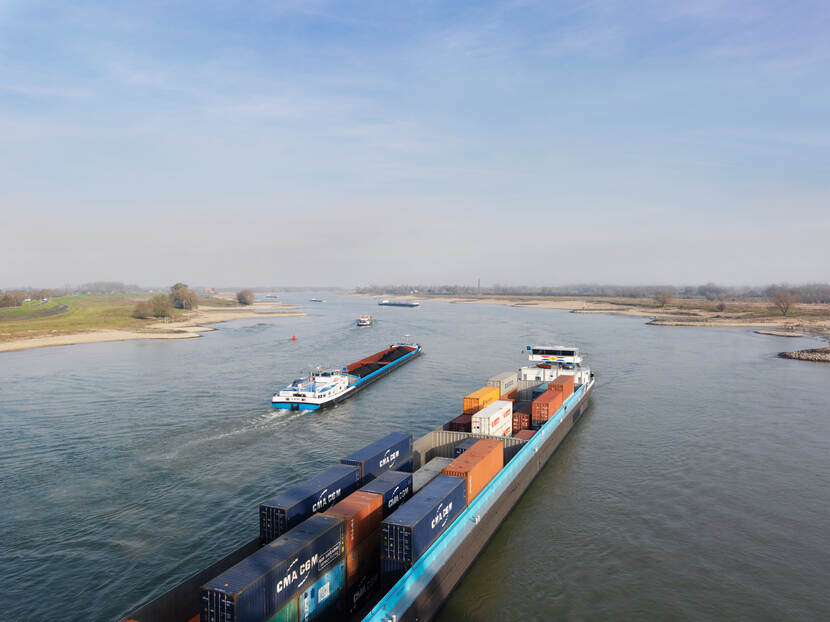
Sustainable energy
Water plays an important role in the transition to sustainable energy. On the North Sea, for example, we need space for new wind farms. In the Regional Energy Strategies (RES) we are working out targets for the generation of sustainable energy for inland waterways and other purposes.
Management by Rijkswaterstaat
In the planning period of this NWP, Rijkswaterstaat will be focusing on approaches to counter salinisation and exploring interventions for a climate-proof freshwater supply. In addition, Rijkswaterstaat is implementing the relevant recommendations from the Drought Policy Committee. This includes continuing Smart Water Management, working with regional water managers to further improve operational water management.
In addition, Rijkswaterstaat is working on fast, safe, robust and sustainable shipping by means of the construction, management and maintenance of national waters and waterways. In doing so, a lot of attention is given to making the network climate-proof. With innovations in the field of technology, data and digitisation, transport on water is being made safer, cleaner and more efficient. Rijkswaterstaat is reducing its own energy consumption and focuses on climate-neutral working practices. It also contributes to the energy transition by allowing its property to be used (on certain conditions) for the production of sustainable energy.
